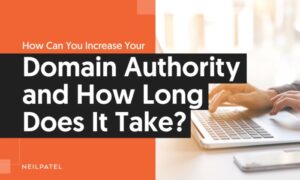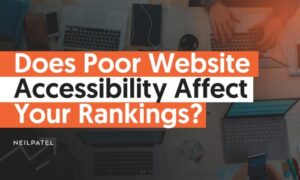In 2019, ecommerce sales were $3.53 trillion worldwide.
According to Statista, that number is projected to grow to $6.54 trillion by 2023. Online shopping was a popular past time before the pandemic, but ecommerce has grown by 20 percent in 2020 alone.
Are you ready?
With the right preparation, ecommerce retailers can achieve double-digit conversion rates and consistent, year-over-year growth. Not sure how to achieve these results on your own? An ecommerce consultant can provide you with the step-by-step support you need to achieve these amazing results.
3 Ways an Ecommerce Consultant Can Help Grow Your Business
The pandemic hasn’t been good for everyone.
CB Insights found that the retail apocalypse that started in 2015 actually accelerated during the Covid-19 pandemic. Small, local businesses that neglected ecommerce suffered the most. Large companies with well-known ecommerce stores filed for bankruptcy in 2020.
These are brands you’d probably recognize.
Brooks Brothers, GNC, Neiman Marcus, Hertz, J. Crew — these companies were all leaders in their market at one point or another. But now, 30+ of these companies are on life support.
Online customers are pessimistic and highly skeptical. They’re choosing to work with established companies like Amazon who are willing to offer free two-day shipping.
How’s a consultant supposed to help you survive that?
Here are three ways ecommerce consultants can help retailers address the problems they’re facing.
1. Precise customer targeting
In many cases, 80 to 90 percent of your marketing work is done here. This is also the most difficult part to sell to you, the client. The response is typically along the lines of: “Oh, we know that already.” A good ecommerce client knows how to test that claim.
They do it by asking questions.
Who’s your customer; how familiar are you with their desires, goals, fears, frustrations, and problems? What are their demographics and psychographics? Do you have the answer initially, as most sellers do, or consistently?
Customers change.
What’s okay today won’t be tomorrow.
Here’s why that’s important. Everything your ecommerce consultant does, the effort they invest to help your business grow, it all depends on this step. You can’t create a persuasive product offer or shopper incentive if you don’t know your customers as well as you think you do.
Your ecommerce consultant will refine your audience.
They’ll help you find the people who are willing to spend more money with your business over time.
2. Creating profitable offers with features and benefits
CBInsights shared a list of the most common reasons for startup failure. They listed more than a dozen categories, but most of them weren’t all that important. Don’t get me wrong; they were important, just not the most important. Here’s what was the most important thing.
No market need.
Forty-two percent of startups failed because they created a product with features and benefits no one wanted. Those are startups, though; things are different with ecommerce stores.
Only they’re not.
Research shows 90 percent of ecommerce startups fail in the first 120 days; of the remaining businesses:
- 36 percent fail in year two
- 44 percent fail in year three
- 50 percent fail in year four
The biggest reason?
Ecommerce stores focus their attention on the wrong product. Customers refuse to buy those products, so eventually, the business fails. An ecommerce consultant helps you create the right product. If they’ve enabled you to do the upfront work needed to target your customers, you should have a pretty good idea of the products customers actually want.
3. Use Customer Pessimism to Increase Sales and Average Order Values
You’re going to have two types of customers. Optimists and pessimists. Optimists are easy to sell to but harder to keep. Pessimists, on the other hand, are harder to sell to but easier to hold.
A meta-analysis by Bart S. Vanneste shows how this works.
- Trustors (your customers) start a relationship with trustees (you).
- Trustors use what scientists call “perceived trustworthiness.” That’s the fuel or spark you need to take a risk.
- Afterward, trustors change their impression of you to match reality.
Here’s where it gets tricky.
- Optimist trustors overestimate trustworthiness. At first, they give you more than you deserve. As they’re disappointed, their trust in you decreases over time. If they’re not happy with the results, their trust continues to fall.
- Optimist trustors overestimate trustworthiness. At first, they give you more than you deserve. As they’re disappointed, their trust in you decreases over time. If they’re not happy with the results, their trust continues to fall.
A great ecommerce consultant knows how to build trust with skeptical or pessimistic customers. They’re able to use your customer’s natural distrust to increase sales and revenue using helpful tactics like warranties, return policies, guarantees, and promises.
They’ll show you how to convert this trust to revenue, increasing your sales, upsells, and average order values.
How to Get Started With an Ecommerce Consultant
Your ecommerce consultant should be a specialist with deep expertise in retail or ecommerce. Think about your needs and the specialty and experience of the consultant. Will you be working with an individual or a team? You are looking for proven knowledge and expertise that has produced successful outcomes for other clients. You want your consulting team to be able to generate the same results for you.
They should also have experience across a broad range of marketing disciplines and channels, including:
- Analytics
- Email marketing
- CRM
- Content
- Branding
- Direct Response
- Marketing automation
- Market research
- Mobile
- Sales
- SEO
- PPC
- Website
Once you’ve decided on the consultant you’d like to work with, ask them to answer these questions:
- What do you need from me?
- When do you need it?
- What’s your role, and what’s my role?
- Will I have a dedicated rep to contact?
- What’s your process for communication?
- How can we ensure a smooth experience?
You’ll want to see that your consultant follows a process. They should provide you with clear answers to each of these questions.
Measuring the ROI of Ecommerce Consulting Services
Measuring the ROI of ecommerce consulting is pretty easy.
If you’re tracking the right metrics, you’ll be able to measure your ROI. While there are hundreds of metrics you can track, only a few of these metrics are essential. Ask your consultant to start with the essentials, then build from there.
Here’s a shortlist you can use.
- Traffic (unique visitors): The number of qualified prospects who visit your site. If you’re using a tool like Google Analytics, you’ll want to make sure you’re filtering out traffic from bots or spam. Your visits should be focused on generating traffic from qualified traffic sources.
- Conversion rate: It’s the number of conversions divided by the number of users. You can have several different conversion goals (e.g., leads, ecommerce, likes, etc.).
- Revenue by traffic source: This shows you which traffic source is most profitable and clarifies where you should spend your marketing and advertising dollars.
- Cost per action: This tells you how much it costs to generate a lead, make a sale, or upsell a particular customer. It’s an important part of your breakeven calculation used to determine whether you’re profitable (or not).
- Ecommerce churn rate: Churn measures the number of customers leaving your business in a particular period. It’s typically a SaaS metric, but it’s now commonly used as a metric for ecommerce. If your churn is going up (i.e., customers are leaving), your revenue is declining.
- The number of returning customers: The formula is returning customers / by total customers * 100. Returning customers have a conversion rate of 60 to 70 percent. The more repeat customers you have, the greater your revenue.
- Average order values: This is a formula, it’s your total revenue divided by the number of orders taken. You can increase average order values using upsells, downsells, and cross-sells.
Your ecommerce consultant should be able to help you track these metrics. If you’re just starting out, you’ll want to focus your attention on these seven essential metrics.
7 Point Checklist For Finding the Right Ecommerce Consultant
What should you look for in a consultant?
If you’re looking for high-quality consultants, what sort of questions should you be asking? Are there specific details you’ll need to focus on to make sure your store attracts the right people?
Here’s a list of the qualities and characteristics you need to find the right consultant for your business.
- A good reputation: You’ll want to look for reviews, references, and testimonials. You’ll want to find a consultant with positive reviews from the majority of their clients. If your consultant doesn’t have an established reputation, you’ll want to look for content that establishes credibility and authority.
- No ethical grey areas: Your consultant shouldn’t have any issues with black hat SEO or questionable tactics. There shouldn’t be a history of unethical behavior, cheating, or suspicious behavior.
- Clear goal setting: Your consultant should be comfortable working with your goals and objectives. They should understand your business well enough to be able to track and manage the key metrics and KPIs you need to grow. The right consultant should be able to help you set goals, objectives, and KPIs. They should be able to help you develop your goals and objectives.
- Consistent ROI: Your ecommerce consultant should be able to show you that they achieved consistent results over a three to five year period. Asking for case studies and the references that go along with them is a good start. But you’ll want them to provide you with detailed figures or evidence showing that they’ve either been able to do this for themselves or other clients just like you.
- Experienced ecommerce sellers: You’ll want to focus your attention on consultants who have owned, managed, or grown an ecommerce store successfully. They need to have familiarity or experience with ecommerce. They should be able to show you the store, provide you with case studies, or outline the work they did for the ecommerce brand.
- Focus on customers’ first, search engines second: Consultants should create high-quality content for customers first, search engines second. The emphasis should be on attracting the right customer at the right time, for the right price, whether you’re speaking to a cold audience, subscribers, customers, followers, fans, or a combination.
- Deep ecommerce expertise: Your consultant should have experience in the same industry or space. Look for in-depth knowledge and expertise with your industry, business, product, or service. If they don’t have the expertise you need, they should be able to demonstrate that they have experience with a similar ecommerce topic or niche.
These are details that high-caliber consultants, including agencies like NP Digital, provide. If you’d like your company to grow, choose consultants who meet these criteria.
Conclusion
Ecommerce sales continue to grow rapidly.
You can achieve double-digit conversion rates and consistent, year-over-year growth. An ecommerce consultant can provide you with the step-by-step support you need to achieve these results.
With precise customer targeting, good products, profitable features and benefits, and some customer pessimism, your ecommerce consultant can help you achieve double-digit conversion rates and consistent, year-over-year growth.
The post Ecommerce Consulting appeared first on Neil Patel.




